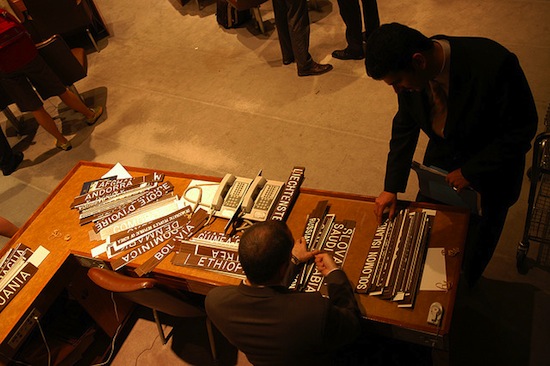On Monday, disarmament diplomats are convening in the basement of the United Nations in New York to discuss arms transfers for the second time this summer, this time for the Second Review Conference of the 2001 UN Programme of Action to Prevent, Combat and Eradicate the Illicit Trade in Small Arms and All Its Aspects.
The Programme of Action is voluntary, non-binding instrument intended to tackle illicit transfers of small arms. During its negotiation, the text was criticized as a ‘Program of Inaction’ and one NGO predicted it would be “unlikely to establish a follow-up process that would hold governments to even their rhetorical commitments.”
The First Review Conference of the Programme of Action in 2006 failed to agree on a formal outcome document or report, thus “failing to provide the General Assembly with either a mandate to conduct a further review in five years, or guidance on future implementation.” According to one NGO, “divisions surfaced between those states wanting to expand its scope to include provisions on ammunition, civilian possession, and a prohibition on transfers to non-state actors and those that wished only to focus on implementation of the existing measures adopted in 2001.” Oxfam blamed a “tiny minority number of countries” for holding the rest of the conference hostage due to the consensus-based decision-making process that guided the conference. States that blocked consensus on that occasion included the “usual suspects” of Cuba, India, Iran, Israel and Pakistan.
This time, the Second Review Conference is expected to focus on implementation challenges for the Programme of Action. New Zealand’s Ambassador Jim McLay has led preparations for the conference and in a foreword to a new briefing paper by the Small Arms Survey highlights implementation challenges as well as the need for “carefully managing ‘unfinished [Programme of Action] business’ in terms of further normative development.”
While states failed in July to adopt an Arms Trade Treaty regulating licit transfers of arms, that process is due to pick up again in October and there are no serious calls for the Programme of Action to be turned into a legally-binding instrument to tackle illicit transfer of arms. NGOs engaging in the process have focused on the need for stronger national implementation, including stockpile security and the destruction of small arms. The Mines Advisory Group has highlighted the need for international cooperation and assistance to be implemented in a call for states to increase financial assistance necessary for implementation of the Programme of Action.
One NGO has observed that “the incidence of armed violence in many parts of the world has not diminished” in the decade since the Programme of Action was created. Indeed, the conference comes as New York reels from a shooting outside the Empire State Building on Friday morning that left two men dead and injured nine bystanders.
The Second Review Conference runs from 27 August until 7 September 2012 under the presidency of is Ambassador Joy Ogwu of Nigeria.


Leave a Reply